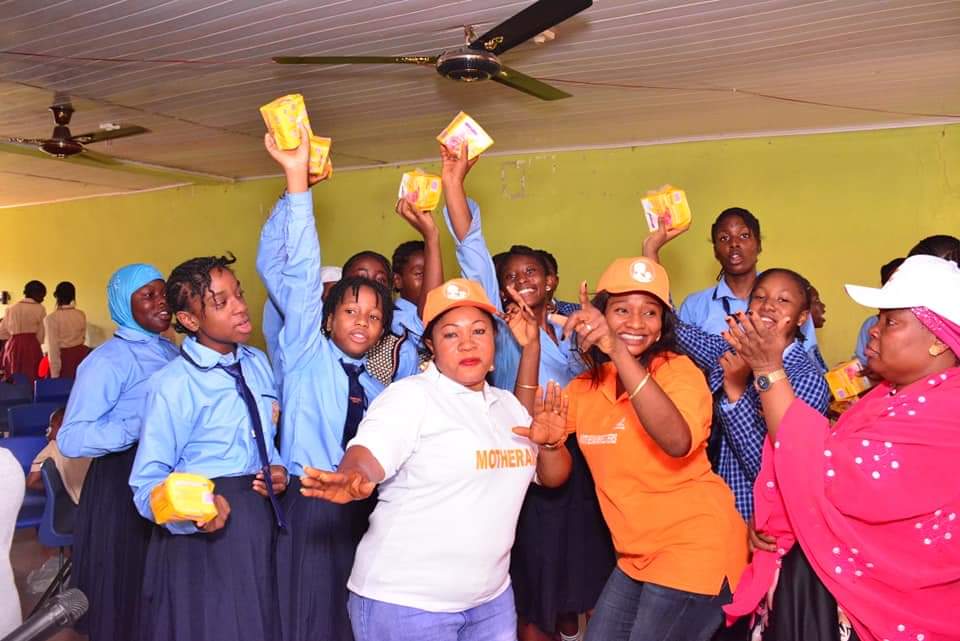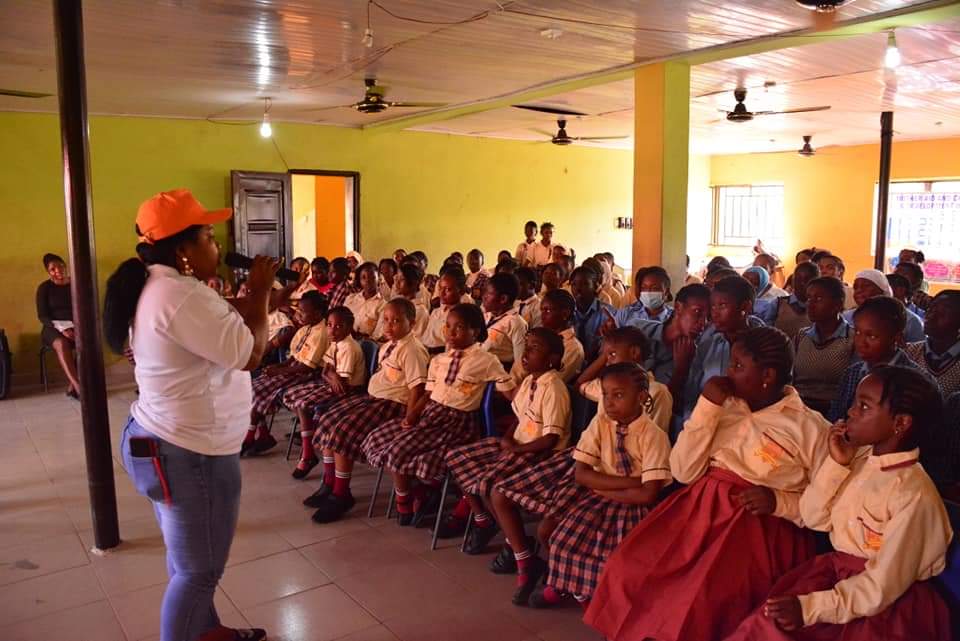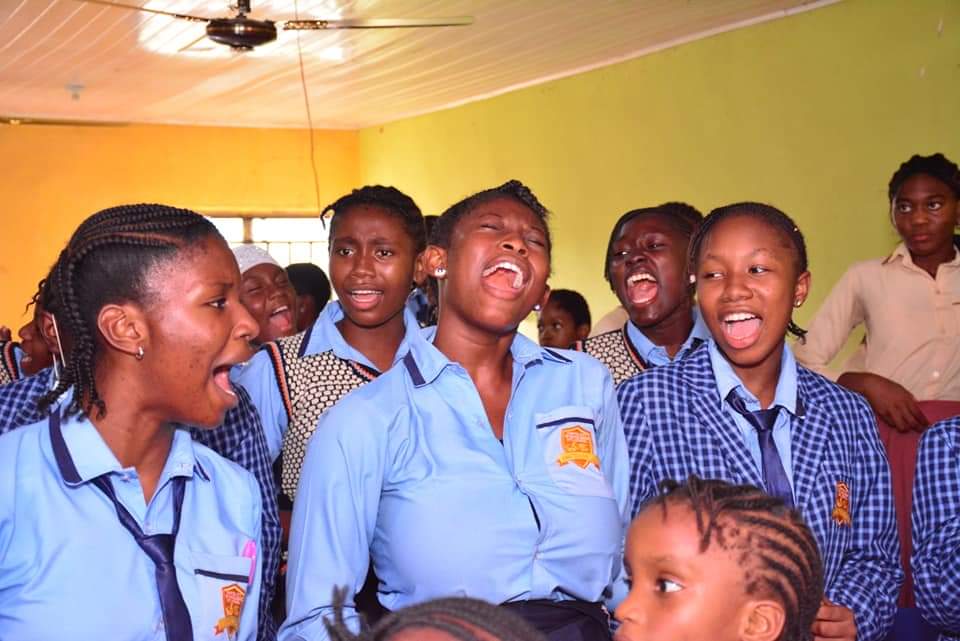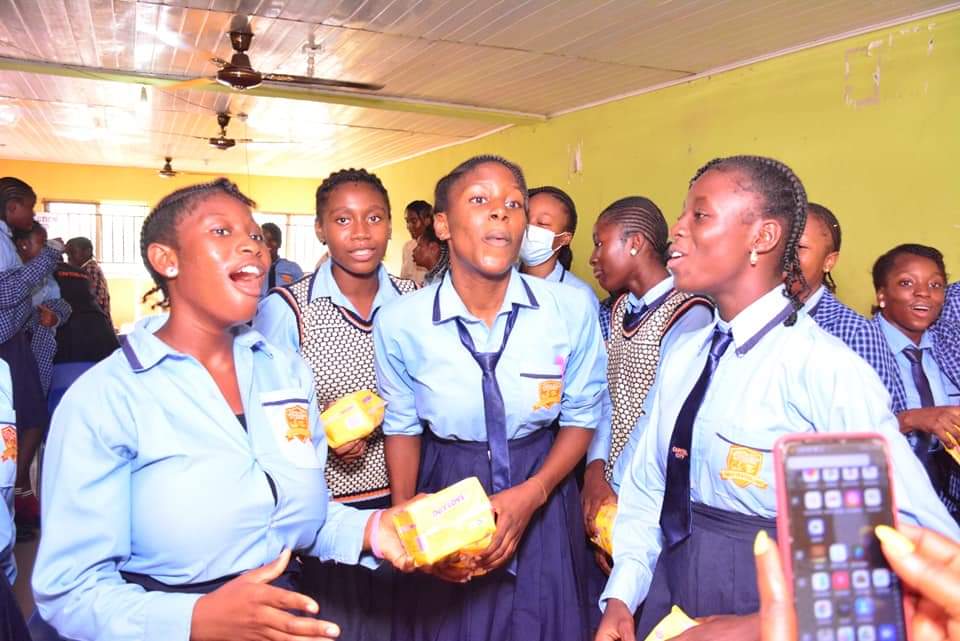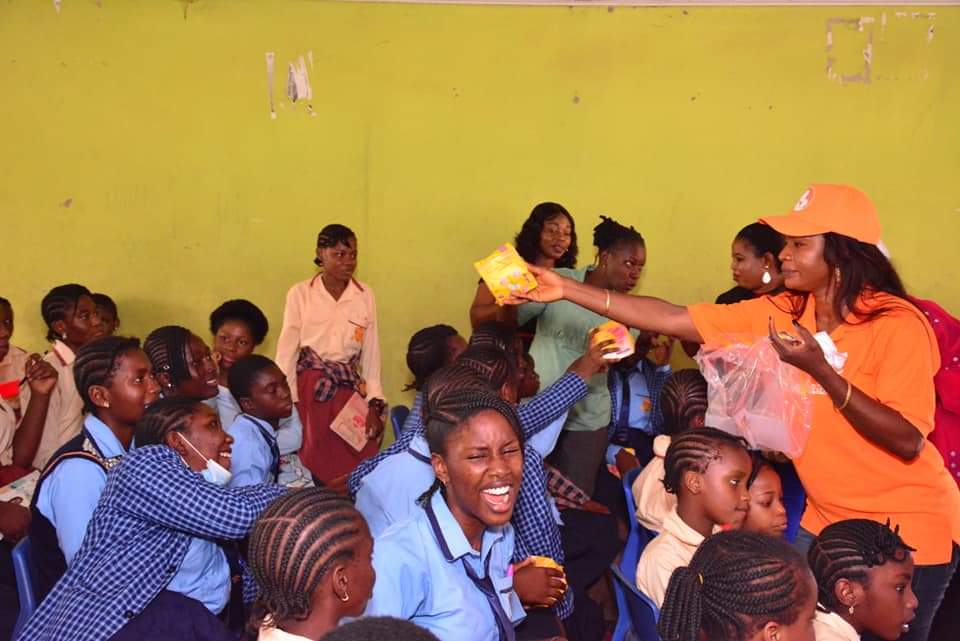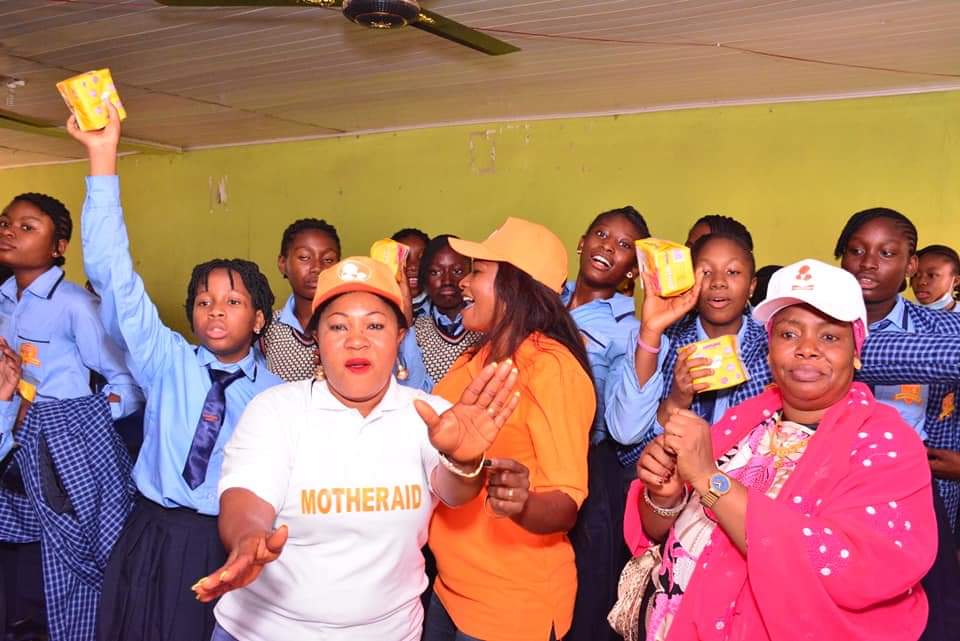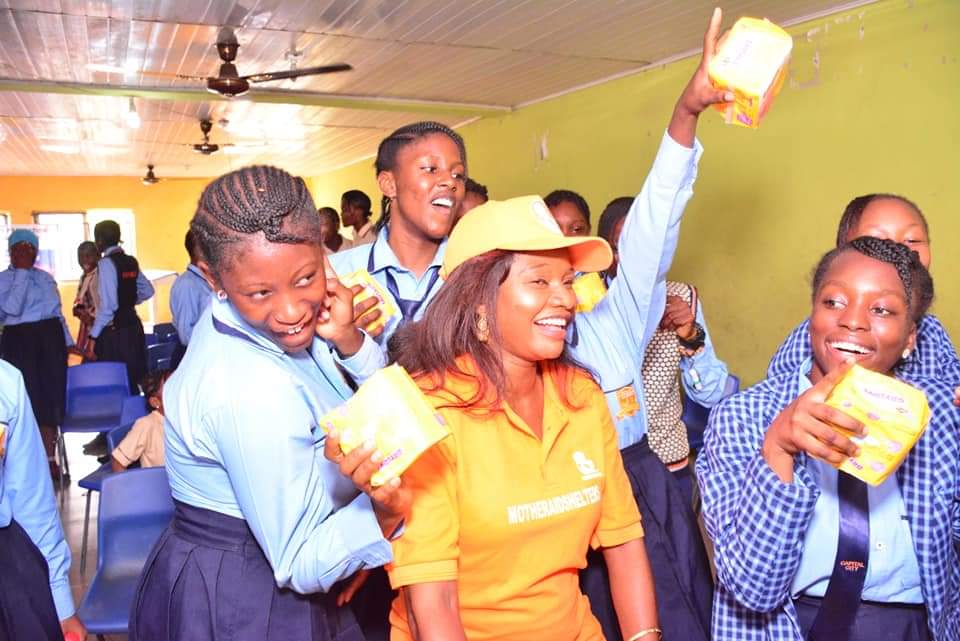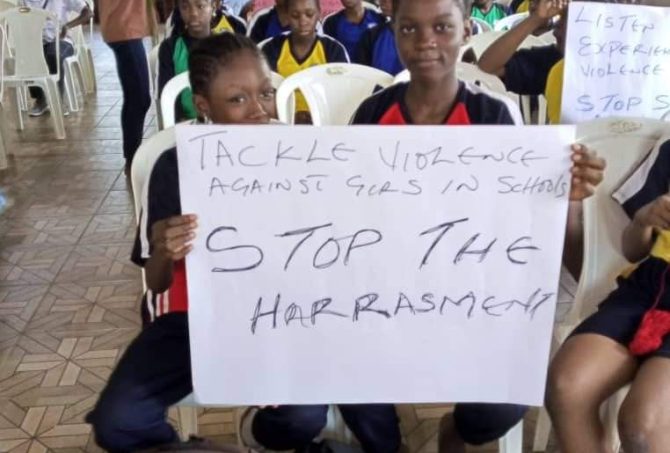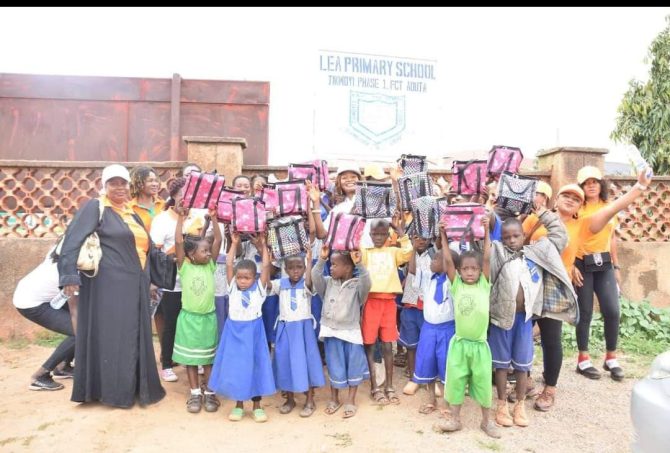Breaking Barriers: MotherAid’s Mission to Foster Puberty Well-being in Secondary Schools – Nurturing Girls with Essentials and Empowerment
The neglected Reality of a typical Rural African young girl
Underneath the façade of supposedly bubbly girls, living daily lives in many parts of Africa lies the problem of lack of access to proper menstrual hygiene management tools or kits. From schools to business places, religious organizations amongst others, a hive of women and girls face the harsh reality of inability to manage their periods due to poor access to water, sanitation, and hygiene facilities, common in many low- and middle-income countries of
Africa ..The issue of privacy and dignity during menstruation is still one area in which women and girls failed every day. All of these further takes a toll on the emotional life, education, development of the girl child amongst others. The pandemic further impedes the ability/efforts of non-governmental organizations hitherto saddled with the responsibility of tutoring young girls in mostly rural and underserved communities the art of making re-useable pads to address the challenge of period poverty. Deep-seated Menstrual taboos, common among many African tribes have also served as major setbacks to proper menstrual hygiene management. With all of these, the period poverty struggle, made worse by poor water sanitation and hygiene facilities in African communities continues. There is still an urgent need to increase sensitization, and advocacy to break menstrual taboos, reduce cost and improve access to menstrual hygiene products and facilities especially following the COVID-19 pandemic and its attendant overbearing effects.
MotherAid sensitization on period poverty
Period poverty, defined as a lack of access to period products, education, and facilities, is a major issue affecting millions of women globally. According to the World Health Organization (WHO), over 500 million women and girls do not have access to sufficient menstrual hygiene management sanitation services. Women’s health suffers as a result of a lack of access to menstrual products and facilities, as well as their social and economic well-being.
According to the WHO, a lack of access to menstruation products and facilities can result in bacterial infections, reproductive tract infections, and urinary tract infections. The UN has also acknowledged that poor menstrual hygiene management might result in toxic shock syndrome and cervical cancer. The use of unsanitary materials like old rags, leaves, or newspapers can increase the risk of infection and disease.
Women’s mental health is also impacted by period poverty. According to UNICEF, girls who cannot afford menstrual products typically feel humiliated, which leads to anxiety and despair. In rare situations, girls may drop out of school entirely, resulting in social isolation and marginalization, as well as decreased access to educational and career possibilities, with long-term social and economic ramifications.
Furthermore, the social stigma associated with periods can make women feel ashamed or afraid to seek help or speak out about their problems. This can lead to a lack of menstrual health knowledge and education, prolonging the cycle of period poverty.
Health experts and advocates have named “period poverty” as the main reason that young girls routinely stay away from school, especially in developing countries.
Period poverty is when a girl cannot afford menstrual products during menstruation, which is approximately four days every four weeks. Such girls would often resort to unhygienic practices.
Menstruation is an integral part of a woman’s life but is a nightmare for the over 1.2 billion women across the world who do not have access to basic sanitation during their periods, according to a study.
Another report suggests that women who experience period poverty are likely to suffer from anxiety or depression.
MotherAid End period poverty campaign
The organisation launched a 4year campaign in 2022
focused on enhancing public knowledge, attitudes, and practice relating to menstrual hygiene and ensuring that menstrual hygiene management becomes a public health priority in policy development. The campaigns leverages education as a key tool for fostering countercultural conversations around menstrual hygiene management, with the aim of changing people`s perceptions and breaking down myths surrounding menstrual hygiene, especially for teenagers and adults. To do this, the campaign uses informational and learning materials as well as specifically tailored communication tools.
MotherAid took her campaign to community schools and sensitised them regularly on menstrual hygiene management. MotherAid distributed about 300 sanitary kits to girls in community schools , including to physically challenged persons. More than 30 schools were sensitised and equipped with the skills they need to facilitate menstrual hygiene management awareness activities. MotherAid also supported a school by building of toilet facilities for menstruating girls
we worked closely with community health centers and trained Health Actors and we gave them the tools they use for sensitisation campaigns. They carried out all the various menstrual hygiene awareness activities at the community level, and helped integrate communications on menstrual hygiene management into their communities and schools.

